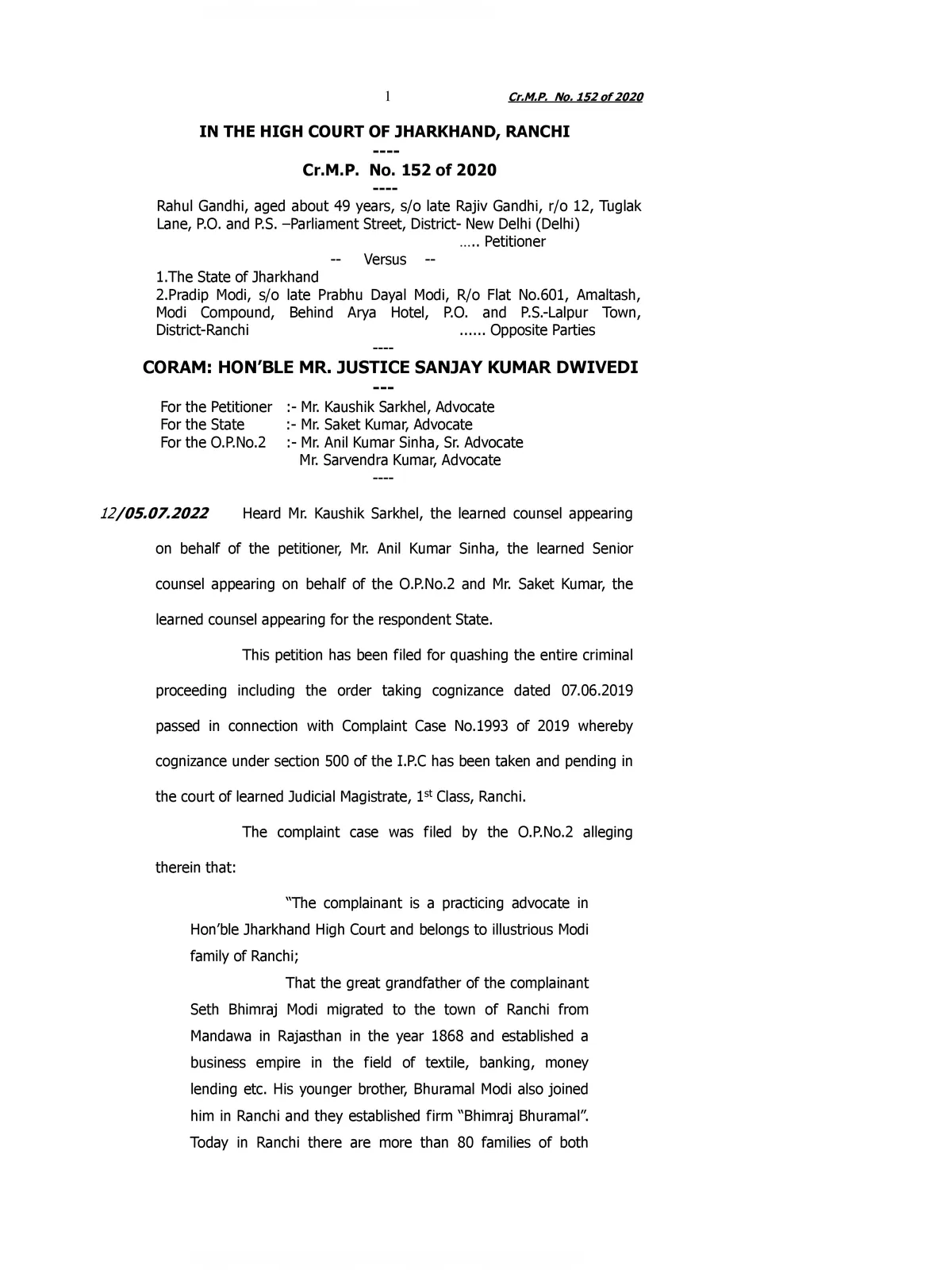Rahul Gandhi Defamation Case - Summary
BJP MLA and former Gujarat minister Purnesh Modi kicked off a defamation case against Rahul Gandhi. Purnesh Modi, who was a minister in the first term of the Bhupendra Patel government, is currently an MLA from the Surat West Assembly. To show their strength and support for Gandhi, many Congress party members gathered in Surat.
The Surat Court, led by Chief Judicial Magistrate HH Varma, found Gandhi guilty under sections 499 and 500 of the Indian Penal Code. However, the court granted him bail and took action to suspend the sentence for 30 days, allowing him the opportunity to appeal in a higher court, as shared by Gandhi’s lawyer, Babu Mangukiya.
Understanding the Defamation Case
Recently, the court wrapped up hearing final arguments from both sides. Gandhi’s lawyer, Kirit Panwala, highlighted that Gandhi’s last appearance before the Surat court in this case was back in October 2021, where he provided his statement, according to a PTI report.
In March 2022, the Gujarat High Court paused the proceedings after Modi filed a petition seeking a stay, mainly due to concerns about inadequate evidence. Advocate Harshit Tolia, representing Modi, mentioned, “We have now withdrawn the petition following sufficient evidence coming on the court’s record.” They noted that CDs and a pen drive contained the alleged material.
What do IPC Sections 499 and 500 State?
Defamation is a legal issue that revolves around damaging a person’s reputation. In India, defamation can be seen as both a civil wrong and a criminal offence, depending on the goals individuals want to achieve.
A civil wrong typically aims for monetary compensation, while criminal law focuses on punishing the offender and discouraging others from similar actions, which can include imprisonment. In a criminal case, defamation must be proven beyond a reasonable doubt. On the other hand, in a civil case, damages might be awarded based on the credibility of the claims.
Section 499 of the IPC outlines what constitutes criminal defamation, and the following provisions specify its penalties. This section explains that defamation can happen through spoken words, written material, signs, or visible representations. Such statements can harm a person’s reputation if made with the intention or knowledge that they are likely to cause damage.
Section 500 describes the punishment for criminal defamation, which may include imprisonment for up to two years, with or without a fine.
For a deeper understanding of the case and the legal details involved, you can also download the detailed PDF document for your reference. This PDF is readily available for download. 📥
